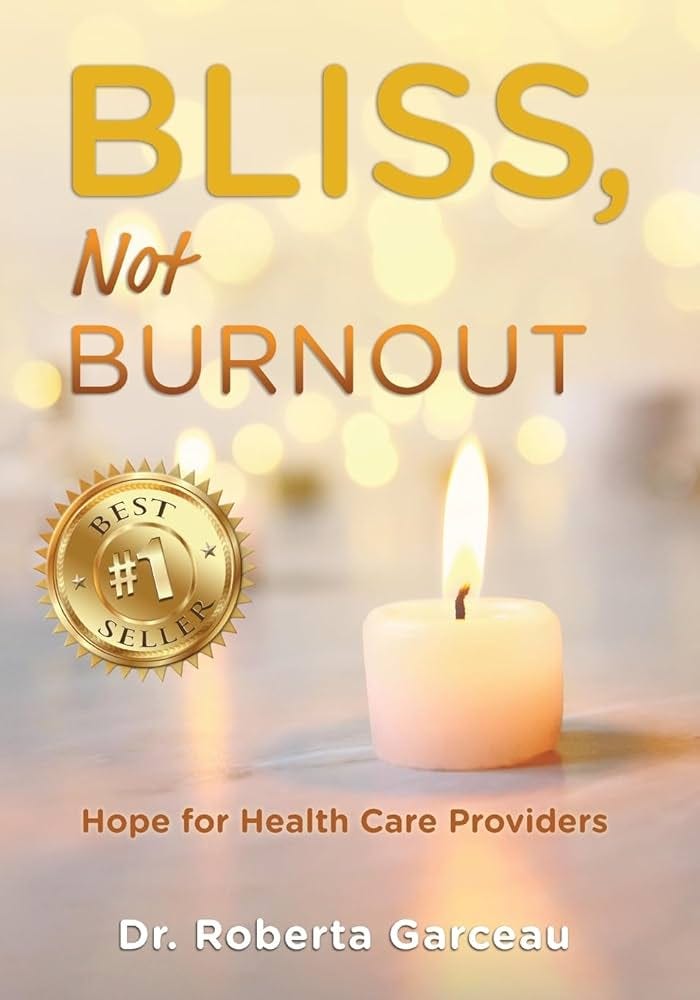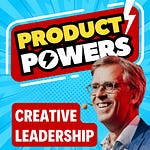Do you feel the AI overwhelm or burnout from the pressures at work? A global leadership survey by Forbes (2025) found that 71% of leaders have experienced a significant rise in stress since taking on their current role. The CIPD’s latest Health and Wellbeing report adds that 64% of organisations have seen stress-related absences in the past year, and Mind the Product describes burnout as “all too common” among product managers and owners who are constantly balancing stakeholder expectations with delivery deadlines.
If you’re a Product Owner, you probably recognise this tension. You’re managing competing priorities, navigating uncertainty, and making hundreds of micro-decisions every week — often with limited control over the bigger picture. It’s no wonder that creativity and energy start to drain over time.
That’s why my conversation with Dr Roberta Garceau felt so timely. A practising dentist, yoga and Ayurveda instructor, and author of Bliss, Not Burnout, Roberta blends medical science with human insight to help professionals find balance without stepping away from ambition.
Here are the key takeaways from our discussion — practical ideas every Product Owner can apply straight away.
1. Burnout Is a Spectrum, Not a Switch
Roberta describes “bliss” and “burnout” as two ends of a sliding scale. You don’t fall into burnout overnight, you drift towards it through small compromises: skipping breaks, ignoring signals from your body, saying yes too often.
For Product Owners, this might look like spending more time updating Jira than speaking to customers, or saying yes to features you know don’t fit the vision. The slide happens quietly until focus and enthusiasm disappear.
Start noticing the early signs before they cost you creativity.
2. Adversity Is Often the Real Teacher
Roberta shared the story of her own health scare. She had a life-threatening bleed that was initially misdiagnosed. It forced her to ask a hard question: If this was it, would I be happy with how I’ve been living?
She realised adversity can reveal what really matters.
In product work, we face smaller versions of this every week: failed releases, stakeholder conflicts, missed targets. Instead of treating these moments as disasters, treat them as learning opportunities. Each setback contains information about your priorities, your boundaries, and your decision-making process.
3. Self-Care Through Self-Awareness
The word self-care can sound quite fluffy. But Roberta’s definition is about awareness, noticing how you feel, where tension sits, and how your habits affect your energy.
When you’re aware, you lead better. You make smarter trade-offs.
Ayurveda calls this balance across elements — when one area of your life is out of alignment, it eventually drags the others down.
4. Vulnerability Builds Trust Faster Than Certainty
Early in her career, Roberta believed leaders should appear flawless. Now she sees vulnerability as strength.
When you admit uncertainty — “I don’t have all the data yet, but let’s explore it together”
By taking this approach, you invite collaboration.
Google’s Project Aristotle showed that teams with psychological safety outperform others by a wide margin. Vulnerability creates that safety. And for a Product Owner, that means fewer hidden issues, richer retrospectives, and more honest conversations about risk.
5. Micro-Habits That Actually Work
Roberta’s approach to wellbeing is refreshingly practical. You don’t need a two-hour morning routine. You need repeatable, small resets:
Exhale first. One slow breath through the nose resets your nervous system.
Move a little. Ten minutes of walking can boost creative thinking by 60%.
Protect one non-negotiable. Whether it’s exercise, journaling, or a quiet coffee, treat it like a meeting with yourself.
These micro-habits are easy to ignore but powerful over time. They help you regulate stress before it sabotages your judgement.
6. Don’t Rescue — Support
One story that stayed with me was about Roberta’s son moving into his first apartment. It turned out to be a mess: leaks, broken doors, unfinished repairs. Instead of fixing it for him, she asked, “What do you want to do from here?”
He figured it out and learned more by doing so.
That’s what great leaders do. As a Product Owner, resist the urge to swoop in every time something goes wrong. Coach, don’t control. When teams solve problems themselves, confidence and ownership grow.
7. Every Frustration Is Data
At the end of our chat, I asked Roberta what she’d abolish from the world of work. Her answer surprised me: “Nothing.”
She sees every annoyance, every delay, conflict, and miscommunication as information about what’s really happening in the system.
For Product Owners, this mindset is gold. Every blocker, complaint or escalation is feedback about your product or process. The more curious you become about those signals, the stronger your product thinking becomes.
Final Thoughts
If you’re a Product Owner feeling stretched thin, Roberta’s insights offer a reset button. Burnout isn’t a badge of honour. Awareness, small habits, and a more forgiving mindset help us keep ourselves healthy and on top of our Product Owner game.
About Roberta Garceau
As a holistic dentist who’s been practicing for decades, I am passionate about helping others enhance their health, function, self-esteem, and overall well-being. Combining my knowledge of Western medicine with my background as a certified Yoga and Āyurveda instructor gives me a unique perspective towards wellness. With an emphasis on self-awareness and self-care, I believe that everyone can learn simple tools and strategies so they may empower themselves to enjoy greater joy and wellness.










